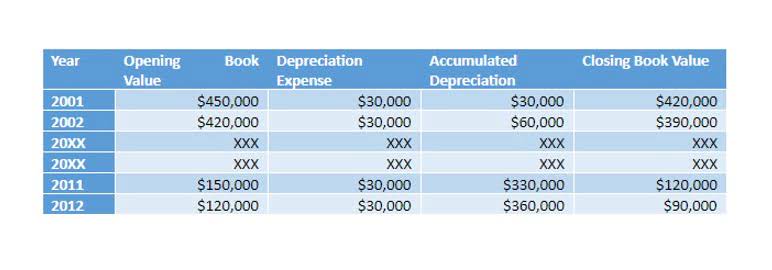
This type of analysis helps management to evaluate how effective they were at carrying out the plans and meeting the goals of the corporation. You will see many examples of reports and analyses that can be used as tools to help management make decisions. Managerial accountants are not legally obligated to follow GAAP because the documents they produce are not regulated by GAAP. Businesses rely on performance measurement metrics to compare their actual results with projections they made during their planning and budgeting phases. Not only does performance measurement help a company course-correct flawed or unprofitable operations, but this crucial benchmark is instrumental in letting a company compare its performance with that of its direct market competitors. More industry resources and research are delving into tax planning for investment portfolios — which is distinct from preparing returns and directly involved with traditional wealth management services.
Organization
- Also known as management accounting or cost accounting, managerial accounting provides information to managers and other users within the company in order to make more informed decisions.
- While both these types of accounting deal with numbers, managerial accounting is strictly for internal use.
- Margin analysis is one of the most fundamental and essential techniques in managerial accounting.
- Although developed nearly a century apart, managerial and financial accounting go hand in hand.
Public companies are required to provide financial statements to these entities. The information delivered through financial reporting is regulated by the Securities and Exchange Commission (SEC) through rules known as generally accepted accounting principles (GAAP). The first https://www.bookstime.com/ similarity between financial and management accounting is that both are a part of the accounting information system. This means that the accounting information which is used in financial accounting can also be used in management accounting to disclose reports and analyses.
Financial Accounting vs. Managerial Accounting: What’s the Difference?
On the contrary, managerial accounting information caters to managers, small business owners, and employees. Managerial accounting reports are not intended to be published or circulated to external users because they may include sensitive and confidential information regarding the business’ pricing and costing strategies. Therefore, only people within the business should have access to managerial managerial and financial accounting accounting reports. The end result is a financial report that communicates the amount of revenue recognized in a given period. Financial accounting is dictated by five general, overarching principles that guide companies in how to prepare their financial statements. It lists the company’s assets, liabilities, and equity, and the financial statement rolls over from one period to the next.
- Practice questions and solutions provide an opportunity for students to apply their understanding of a concept at the exact moment they learn it.
- Companies are often looking for ways to gain a competitive advantage, so they examine a lot of information that might be hard to understand for outside parties.
- Financial and Management Accounting deal with different aspects of the business operations and so both systems are distinct from each other.
- Even if not a requirement for your degree program, seek internship options if possible.
- Financial accounting information is mainly for external users like shareholders, creditors, legal authorities and bodies, such as the SEC or local government authorities, potential and current investors, suppliers, and customers.
- On the other hand, financial accounting reports are tightly regulated, especially when it comes to a company’s balance sheet, income statement, and cash flow statement.
Earn a bachelor’s degree.

Managerial accountants may use data like cash flow, revenue, and profits to identify problems in the flow and cost of production, which affects profitability. Financial accounting deals with the long-term financial decisions an organization may make. This differs from managerial accounting, which works with short-term and sometimes long-term goals that involve an organization’s internal financial processes. Both financial professions work with financial information in similar ways, but for different purposes and uses. Also, since no external standards are imposed on information provided to internal users, management accounting reports run the risk of being subjective.
Why You Can Trust Finance Strategists
Financial accounting and managerial accounting are two of the four largest branches of the profession, in addition to tax accounting and auditing. Despite many similarities in approach and usage, there are significant differences, most of them centering around compliance, accounting standards, and target audiences. Both managerial accounting and financial accounting are centered around numbers, but how those numbers are used varies greatly in these two types of accounting methods. Since Frank’s customer brings in a lot of revenue, you need to devise a plan that will help to offset that loss. However, when you review your financial statements for the past six months, you see that revenue is down across the board. The following day, you and your staff create a plan for bringing in more revenue, starting with expanding sales territories.
Inventory valuation and product costing
As is the case in most professions, a degree is not enough to advance in accounting; you should develop a set of skills as well. A financial accountant should have excellent analytical skills as their primary duty is to analyze data. They should also have excellent negotiation and communication skills as they will always work closely with other departments. Last, but certainly not least, a financial accountant should also be detail-oriented and able to meet deadlines.

- There may be an overlap in job duties between managerial and financial accountants.
- Tax “leakage” from hits to investment portfolio returns amounts to $600 billion in missing potential yield each year, according to an estimate by wealth management firm Avantax.
- Managerial accounting centers around managing the internal needs of a business.
- The reporting foci of financial accounting include reporting the company’s financial conditions and the end results on a particular date.
- It allows businesses to identify and reduce unnecessary spending and maximize profits.
Unlike managerial reports, financial reporting focuses on proven information and accurate data that is aggregated, concise and generalized rather than specific and technical. Constituents include the media, shareholders, investors, tax professionals and creditors. With the financial accounting vs managerial accounting examples we provided, we hope that this information enlightened you about their differences and why both are necessary for businesses.
For example, a sales manager might want to view only sales information in all segments of the business. From the sales manager’s perspective, looking at the sales report is enough information to make decisions. Financial accounting involves the preparation of general-purpose financial statements used by various users in making informed decisions. We recommend learning about the similarities and differences between financial accounting and managerial accounting and weighing the pros and cons. Both roles are integral to a company’s financial department, and it just depends on what you think fits you best in terms of responsibilities and opportunities.
Difference Between Financial Accounting and Management Accounting
- Essentially, the main focus is to provide information in order to help management.
- The external publication of financial statement makes it very necessary to follow regulation to provide correct information.
- Cost accounting, however, doesn’t have to abide by these regulations since it’s used internally.
- Financial accounting focuses on preparing an organization’s financial data for external use.
- The main objective of financial accounting is to ascertain the results of business operations of the business, in terms of profit or loss for the period.
- The key difference between managerial accounting and financial accounting relates to the intended users of the information.
Managerial accountants should have excellent communication skills and be able to work as part of a team. As with any accounting job, managerial accountants should have excellent analytical and numerical skills. Financial accounting and managerial accounting (sometimes called management accounting) are quite different. While both these types of accounting deal with numbers, managerial accounting is strictly for internal use.
What Can You Do with an International Studies Degree
11 Financial’s website is limited to the dissemination of general information pertaining to its advisory services, together with access to additional investment-related information, publications, and links. Management accounting is primarily concerned with the managers of a company and the provision of useful information intended for internal use. Financial accounting is governed by generally accepted accounting principles (GAAP).
